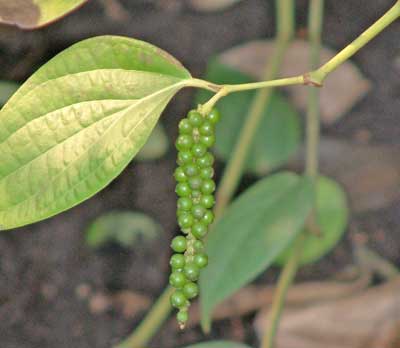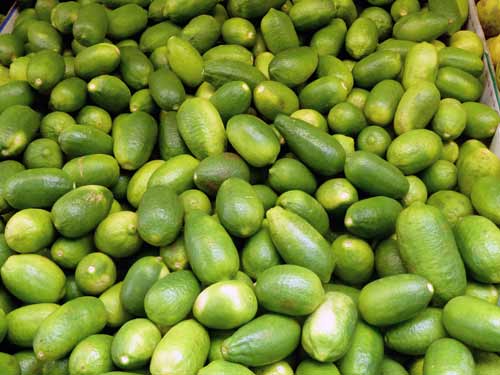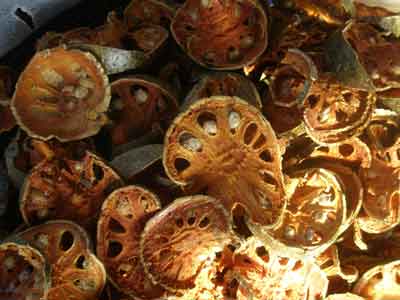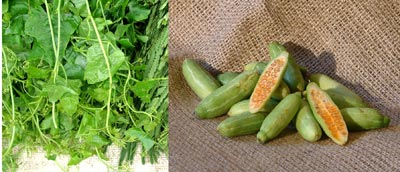Air potato. An intrusive, but one of the most widely consumed varieties of yam cultivated in the Pacific Islands, Asia and West Africa. Uncultivated versions may be bitter and even poisonous (as in Florida).

Black peppercorns, the fruit of a perennial vine with large leaves and white flowers. Green peppercorns are the unripe fruits picked early and pickled. Black peppercorns are picked just before they ripen and white peppercorns are the ripe, black peppercorns with the black skin flaked off. They are best kept whole and ground when required. Historically, pepper was one of the world's most important spices. Columbus sailed West, not East, in search of pepper in the East Indies. Instead he found the Americas and allspice.

Lemon or lime. These seem to be interchangeable. Since the lime grows much more readily than the lemon in India this is more likely to be a lime.

Bael fruit; a close relative of the citrus. The fruit is about the size of, and has the appearance of a greyish-yellow orange with a thin woody rind. The floury pulp is pale orange in colour and has numerous seeds. Dried slices are soaked and boiled and the resulting liquid sweetened and drunk. Used for medicinal purposes.

Ivy gourd. A small crunchy gourd reminiscent of a gherkin, green ripening to red, popular in the cuisines of India, Thailand, Indonesia and other South East Asian countries. The shoots and leaves can also be eaten.

Ivy gourd. A small crunchy gourd reminiscent of a gherkin, green ripening to red, popular in the cuisines of India, Thailand, Indonesia and other South East Asian countries. The shoots and leaves can also be eaten.